Filter by
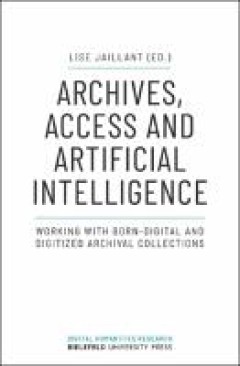
Archives, Access and Artificial Intelligence
Digital archives are transforming the Humanities and the Sciences. Digitized collections of newspapers and books have pushed scholars to develop new, data-rich methods. Born-digital archives are now better preserved and managed thanks to the development of open-access and commercial software. Digital Humanities have moved from the fringe to the center of academia. Yet, the path from the apprais…
- Edition
- -
- ISBN/ISSN
- 9783839455845
- Collation
- oer.unej.ac.id
- Series Title
- Digital Humanities Research,
- Call Number
- -

Updating to remain the same :habitual new media
What it means when media moves from the new to the habitual -- when our bodies become archives of supposedly obsolescent media, streaming, updating, sharing, saving.OCLC-licensed vendor bibliographic record.
- Edition
- -
- ISBN/ISSN
- 9780262333771
- Collation
- 1 online resource
- Series Title
- -
- Call Number
- -

Mood and mobility :navigating the emotional spaces of digital social networks
We are active with our mobile devices; we play games, watch films, listen to music, check social media, and tap screens and keyboards while we are on the move. In Mood and Mobility, Richard Coyne argues that not only do we communicate, process information, and entertain ourselves through devices and social media; we also receive, modify, intensify, and transmit moods. Designers, practitioners, …
- Edition
- -
- ISBN/ISSN
- 9780262330893
- Collation
- 1 online resource (x, 378 pages)
- Series Title
- -
- Call Number
- -

Rogue archives :digital cultural memory and media fandom
"The task of archiving was once entrusted only to museums, libraries, and other institutions that acted as repositories of culture in material form. But with the rise of digital networked media, a multitude of self-designated archivists -- fans, pirates, hackers -- have become practitioners of cultural preservation on the Internet. These nonprofessional archivists have democratized cultural mem…
- Edition
- -
- ISBN/ISSN
- 9780262336772
- Collation
- 1 online resource (x, 430 pages)
- Series Title
- -
- Call Number
- -
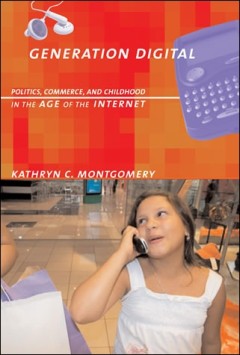
Generation digital : politics, commerce, and childhood in the age of the inte…
The role that children and youth play in the emerging digital media culture-as consumers targeted by marketing campaigns, as creators of their own digital culture, and as political participants.OCLC-licensed vendor bibliographic record.
- Edition
- -
- ISBN/ISSN
- 9780262280129
- Collation
- 1 online resource (xv, 347 pages)
- Series Title
- -
- Call Number
- 302 MON g
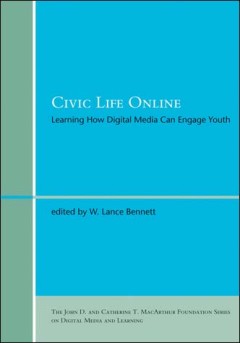
Civic Life Online: Learning How Digital Media Can Engage Youth
The relationship of participation in online communities to civic and political engagement. Young people today have grown up living substantial portions of their lives online, seeking entertainment, social relationships, and a place to express themselves. It is clear that participation in online communities is important for many young people, but less clear how this translates into civic or p…
- Edition
- -
- ISBN/ISSN
- 9780262303125
- Collation
- -
- Series Title
- -
- Call Number
- -
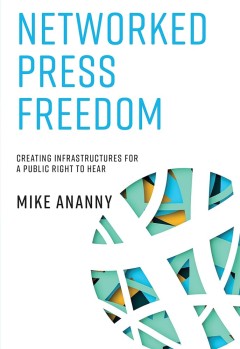
Networked Press Freedom: Creating Infrastructures for a Public Right to Hear
Based on the author's thesis (doctoral - Stanford University, Department of Communication, 2011) issued under title: A new way to think about press freedom : networked journalism and a public right to Hear in the Age of "Newsware."Reimagining press freedom in a networked era: not just a journalist's right to speak but also a public's right to hear.OCLC-licensed vendor bibliographic record.
- Edition
- -
- ISBN/ISSN
- 9780262345828
- Collation
- 1 online resource
- Series Title
- -
- Call Number
- -
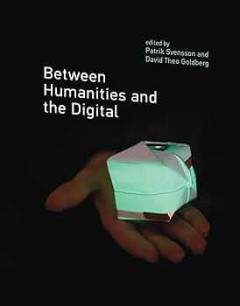
Between Humanities and the Digital
"Like most academic discourses, the Digital Humanities are a conversation in flux. Some would argue that the Digital Humanities are already a well-established field, pointing to the 20-year history of Humanities Computing. Others (me) see a new breed of academic with skills in both technology and the traditional humanities (the Platform Studies and Software Studies series), while others might i…
- Edition
- -
- ISBN/ISSN
- 9780262328364
- Collation
- 1 online resource (xii, 574 pages) :illustrations
- Series Title
- -
- Call Number
- -
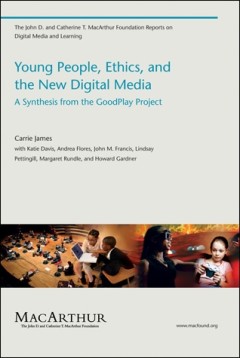
Young People, Ethics, and the New Digital Media: A Synthesis from the GoodPla…
Social networking, blogging, vlogging, gaming, instant messaging, downloading music and other content, uploading and sharing their own creative work: these activities made possible by the new digital media are rich with opportunities and risks for young people. This report, part of the GoodPlay Project, undertaken by researchers at Harvard Graduate School of Education's Project Zero, investigat…
- Edition
- -
- ISBN/ISSN
- 9780262258944
- Collation
- -
- Series Title
- -
- Call Number
- -
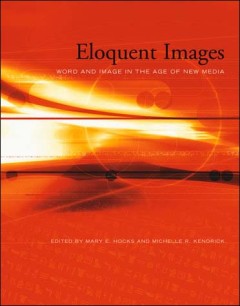
Eloquent Images: Word and Image in the Age of New Media
The emergence of New Media has stimulated debate about the power of the visual to dethrone the cultural prominence of textuality and print. Some scholars celebrate the proliferation of digital images, arguing that it suggests a return to a pictorial age when knowledge was communicated through images as well as through words. Others argue that the inherent conflict between texts and images creat…
- Edition
- -
- ISBN/ISSN
- 9780262275507
- Collation
- 1 online resource (vi, 318 pages) :illustrations
- Series Title
- -
- Call Number
- -
 Computer Science, Information & General Works
Computer Science, Information & General Works  Philosophy & Psychology
Philosophy & Psychology  Religion
Religion  Social Sciences
Social Sciences  Language
Language  Pure Science
Pure Science  Applied Sciences
Applied Sciences  Art & Recreation
Art & Recreation  Literature
Literature  History & Geography
History & Geography